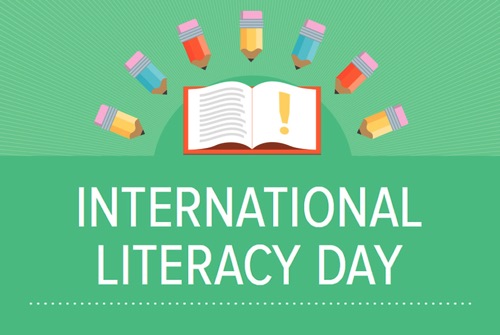
By Uche Amunike
About 31% of the adult population in Nigeria are illiterate, according to the Minister of State for Education, Goodluck Opiah. He made this assertion while holding a ministerial briefing ahead of the International Literacy Day, which is celebrated every September 8, annually, adding that the statistics dropped from 38% in 2015.
The theme for the 2022 International Literacy Day is ‘Transforming Literacy Learning Spaces; Exploring Opportunities and Possibilities.
Recall that during the event in 2021, the Minister of Education, Adamu Adamu stated that the statistics stood at 38%. During his speech, however, Opiah stated thus: ‘It is heartwarming to note that the current statistics of 2022, based on estimations, captured the non-literate population at about 31 per cent of the estimated total population. This is a significant reduction from the hitherto statistics of 38 percent in 2015.’
He explained that the 2022 theme presents the opportunity to rethink the fundamental importance of literacy learning spaces to build resilience and ensure inclusive, equitable and quality education for everyone, adding that over time, new knowledge and technology has changed the definition of what it means to be literate.
He went on to state that the education ministry was committed to the eradication of illiteracy, using the inclusion of Youth and Adult Literacy as an example of its strategic plan.
His words: ‘As you are all aware, the world has become complex with rapid scientific and technological advancements. Several things have changed, including what it means to be literate and this administration is sparing no effort in meeting up with the demands of the present times. The inclusion of Youth and Adult Literacy as a pillar in the Ministry’s Ministerial Strategic Plan (MSP) is a clear and resounding demonstration of the Government’s commitment to advancing literacy.’
He also mentioned some of the areas of adult literacy where the government succeeded. Hear him: ‘guaranteed additional access to adult and non-formal education programmes in 377 centres across the 36 states and FCT, empowerment of graduands of Basic Literacy and Vocational Programmes with skills and income generating equipment in three major trades of Fashion and Design, Home Economics, (including Beauty and Cosmetology) and provided teaching and learning materials to all the 36 state agencies for Adult and Non-Formal Education, among others.’
During the International Illiteracy Day, UNESCO Director-General, Audrey Azoulay, pointed out that 60% of illiterate adults are women.
Hear her: ‘Despite this progress, 771 million youth and adults around the world still do not possess basic literacy skills -60 per cent of whom are girls and women,’ she said.
‘COVID-19 is exacerbating this issue. School closures and disruptions caused by the pandemic have likely driven learning losses and drop-outs. This is especially true for vulnerable populations.’
According to her, the United Nations Educational, Scientific and Cultural Organization(UNESCO) member states have fingered adult learning and education as a core driver for all the SDG goals, adding that before the International Literacy Day, UNESCO hosted a pre-Summit in June, which assembled over 150 Education Ministers to give the reassurance that tomorrow’s education must be inclusive and focused on giving them keys to navigate the contemporary world, apart from basic skills.’







